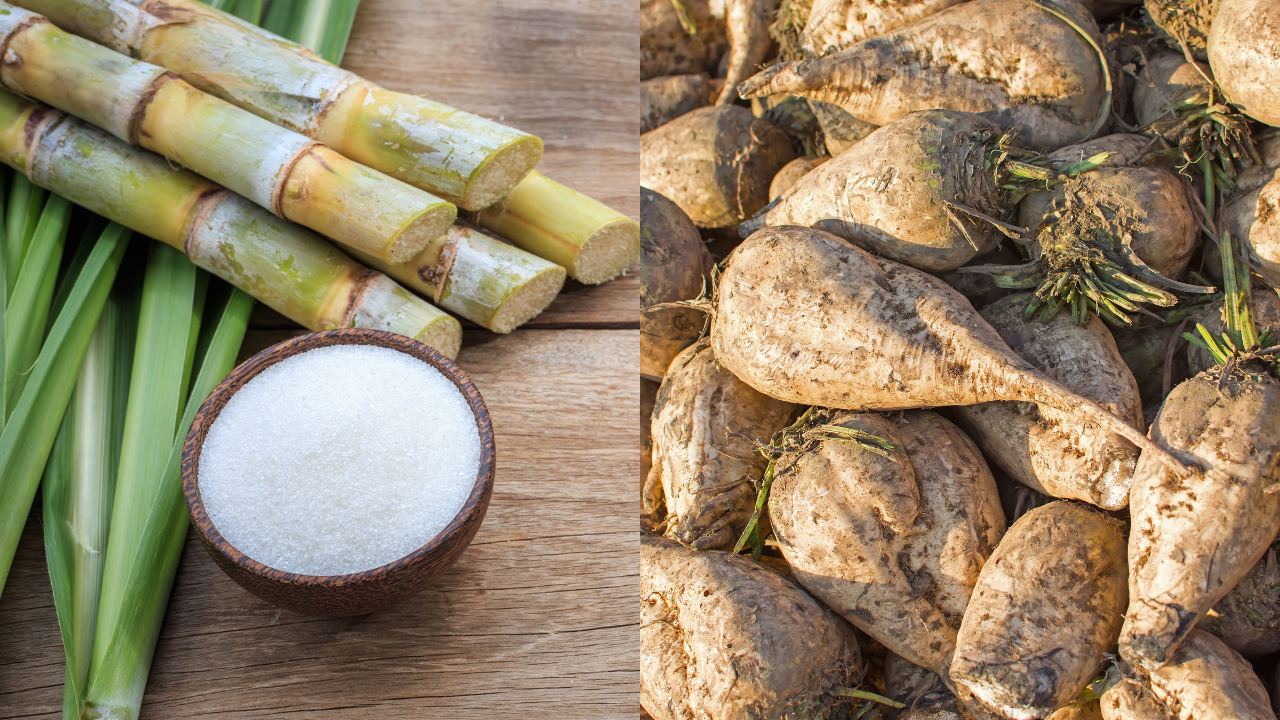Discover the Uses and Conveniences of Beet Sugar Vs Cane Sugar in Your Daily Diet Plan
Exploring the unique top qualities of beet and cane sugar exposes greater than just their sweetening abilities; it highlights their unique influence on wellness and cookeries. Beet sugar, understood for its refined flavor, is typically favored in fragile treats, whereas cane sugar, with its hint of molasses, adds splendor to durable recipes. Each type holds its very own dietary profile and glycemic ramifications, welcoming a much deeper understanding of their roles in a well balanced diet and sustainable usage techniques.
Origin and Production Procedures of Beet and Cane Sugar

The distinct climates and soil kinds needed for expanding sugar beets and sugarcane add to distinctions in their cultivation methods and geographical circulation, affecting the economics and sustainability of their production. beet sugar vs cane sugar.
Nutritional Comparison Between Beet Sugar and Cane Sugar
In spite of originating from different plants, beet sugar and cane sugar are nutritionally extremely comparable, both primarily containing sucrose. Each offers regarding 4 calories per gram, equating to roughly 16 calories per teaspoon. Structurally, both sugars are composed of roughly 99.95% sucrose, with very little amounts of other compounds like wetness and trace minerals, which do not dramatically change their dietary profiles.

Ultimately, when selecting between beet sugar and cane sugar based on dietary material alone, both deal similar benefits and disadvantages as they are essentially types of the exact same molecule-- sucrose, supplying quick energy without other nutrients.
Influence On Health: Glycemic Index and Caloric Content
Discovering better into the effects of beet sugar and cane sugar on health, it is crucial to consider their glycemic index and caloric content. Both sugars are identified as sucrose, which contains glucose and fructose. This composition leads them to have a comparable effect on blood sugar degrees. The glycemic index (GI) of both beet and cane sugar is around 65, categorizing them as high-GI foods, which can cause fast spikes in blood sugar degrees. This is a vital aspect for people handling diabetes or those attempting to support their energy degrees throughout the day.
Each sort of sugar contains about 4 calories per gram, making their calorie material matching. For those keeping an eye on caloric consumption, especially when handling weight or metabolic health problems, understanding this equivalence is crucial (beet sugar vs cane sugar). Excessive intake of any high-calorie, high-GI food can add to wellness problems such as obesity, heart disease, and insulin resistance.
Environmental and Economic Factors To Consider of Sugar Production
Beyond wellness impacts, the production of beet and cane sugar additionally elevates considerable ecological and financial issues. Sugar beet farming often tends to require cooler climates and has a lower geographical impact contrasted to sugar cane, which grows in exotic areas. However, both crops are intensive in terms of water use and land line of work, possibly leading to deforestation and water shortage. Financially, the worldwide check my site sugar market is very unpredictable, influenced by modifications in worldwide profession plans and aids. Lots of nations incentivize sugar manufacturing via economic assistance, skewing market value and influencing small-scale farmers negatively.
In addition, using pesticides and fertilizers in both beet and cane sugar cultivation can lead to dirt destruction and contamination, additional impacting biodiversity and local water bodies (beet sugar vs cane sugar). The choice between cultivating sugar beet or cane usually rests on regional environmental conditions and financial aspects, making the sustainability of sugar production a complex problem
Culinary Applications and Flavor Differences
While the environmental and financial elements of sugar manufacturing are undoubtedly significant, the selection between beet and cane sugar additionally influences cooking applications and flavor accounts. Beet sugar, derived from the sugar beet plant, is recognized for its extremely neutral taste.
Cane sugar, extracted from sugarcane, typically preserves molasses traces, which pass on an unique splendor and deepness. click to find out more The mild variant in dampness web content in between beet and cane sugar can affect the texture and consistency of recipes, making cane sugar a recommended selection for specific recipes that benefit from its unique residential or commercial properties.

Final Thought
Finally, both beet and cane sugar have distinct origins and manufacturing procedures, using similar nutritional accounts with slight distinctions in salt material and flavor. While their impact on health and wellness, especially relating to glycemic index and calories, is similar, the choice in between them usually steams down to ecological, financial elements, and redirected here particular cooking requirements. Comprehending these aspects can guide customers in making notified choices that align with their health objectives and taste preferences.